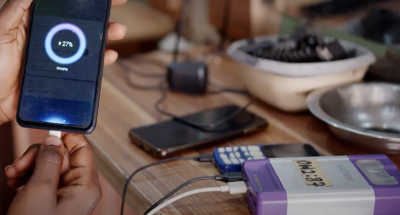Matlare also made the point that South African companies had realised that if they wanted to expand outside their borders, they could not do so effectively with South African staff. Tiger Brands took a great deal of trouble to find the right local partners to work with. “Sometimes mistakes are made; we had to write off a lot of money in Nigeria, but most of the time, we work with strong local partners like Chris Kirubi in Kenya.”
Thakkar added that the appetite to invest in Africa is very strong. “For our first start-up, 90% of our capital came from US. The way we go about these investments is crucial – our firm philosophy is that if you do good, you will do well.” He urged investors to coming in with the right attitude and go for the long haul.
He drew applause when he said that there had been a change of mindset, and governments and companies were no longer inclined to look outside for competence but were beginning to trust African companies more. Local companies stayed during the downturn while foreign firms pulled out. “We’re local, we’re there to stay,”
Although more than 60% of Africa is arable land and there are more than 35m small farmers, Africa produces just 3% of the world’s rice and wheat, and 10% of the world’s maize
The message from these consumer champions was that while Africa was replete with opportunity, it was essential to adapt to local conditions and local tastes, to work with good local partners, aim for the global quality standards and to go in for the long term. Do this, they said, and you, like us, will succeed. Given their track record, one could hardly argue with them.
Gas, food and logistics
The other broad themes covered during the forum included: Africa’s oil and gas boom, agri-business and food processing in Africa, and transport and logistics in Africa.
Involving locals in the oil and gas sector was essential if conflict and misunderstanding is to be avoided said Kola Karim, CEO, Shoreline Energy International. For example, he said, there was communal rioting in Nigeria after an international oil company had shut down a well.
But because his company was able to engage with the community from a local point of view, the issue was resolved amicably. The agri-business panel looked at the critical issue of food self-sufficiency in Africa and the business potential in agriculture.
Venkataramani Srivathsan, MD, Africa & Middle East, Olam International, said although more than 60% of Africa is arable land and there are more than 35m small farmers, Africa produces just 3% of the world’s rice and wheat, and 10% of the world’s maize. “The key issue is the abysmally low yield,” he said. “Twenty countries will achieve food sufficiency if yield goes up by just 10%. The challenge is achieving that yield increase.”
Want to continue reading? Subscribe today.
You've read all your free articles for this month! Subscribe now to enjoy full access to our content.
Digital Monthly
£8.00 / month
Receive full unlimited access to our articles, opinions, podcasts and more.
Digital Yearly
£70.00 / year
Our best value offer - save £26 and gain access to all of our digital content for an entire year!
 Sign in with Google
Sign in with Google 


